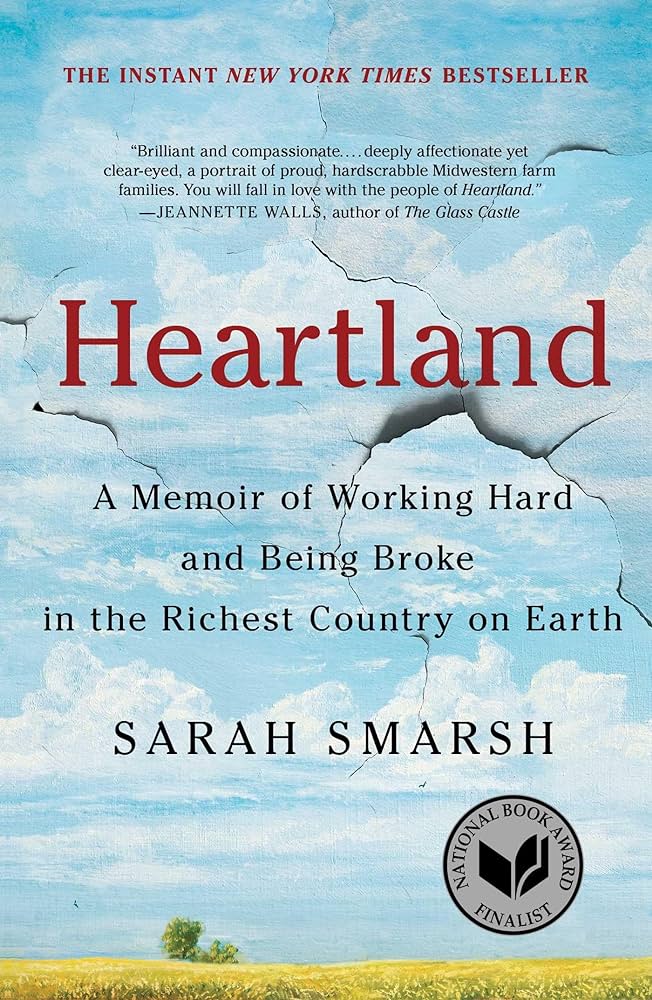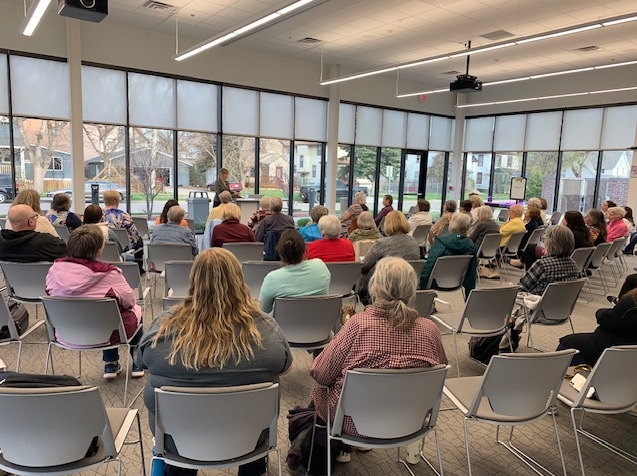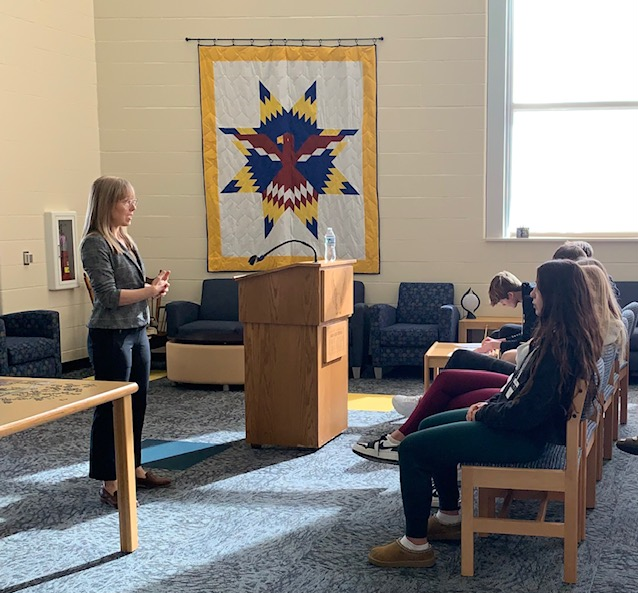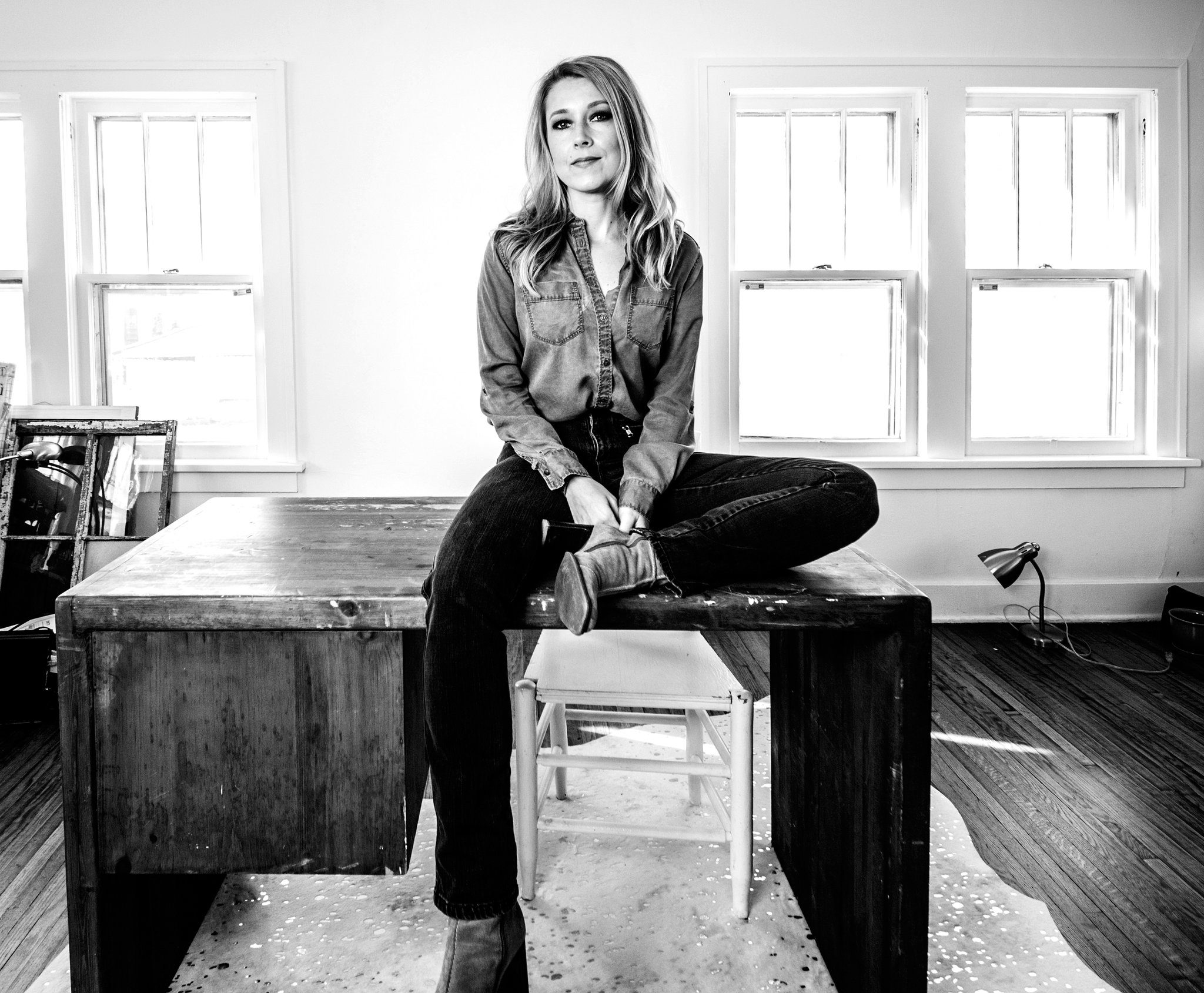On a Saturday morning in late January, a group of rural South Dakotans had a conversation that spanned generations. From memories of an era of farm foreclosures to what it takes to break the intergenerational cycle of poverty and abuse, the Zoom conversation between three Britton, South Dakota community members and two librarians — one from Britton and one from the larger town of Aberdeen — covered a wide stretch of uncommon ground, all sparked by a book.
Aberdeen’s K.O. Lee Aberdeen Public Library used their NEA Big Read grant funding to facilitate conversations about the thorny terrain covered in Sarah Smarsh’s 2018 memoir Heartland: A Memoir of Working Hard and Being Broke in the Richest Country on Earth across rural communities that resemble those of the author’s childhood.
From the perch of childhood, Smarsh’s memoir takes place across a backdrop of farm foreclosures that swept the Midwest during the ‘80s and ‘90s. “She talked a lot about the challenges of poverty and her mom being in and out of abusive relationships. That’s pretty typical of rural America. A lot of women stay with their husbands because they don’t know where else to go. It really resonated with some of our participants,” says Sonya Lang, director of Britton Public Library.
“There are more people in abusive relationships than I think people realize. It’s come to the forefront more in society, but it’s discussed more on the eastern and western costs than it is in the Midwest. We’re a very stoic people. We don’t share our problems,” Lang adds.
By setting up a sign about the Big Read and offering interested community members access to 10 copies of Heartland, the library facilitated rare but moving conversations. “This book brought up a lot of discussion about differences between the generations,” Lang adds. “We talked a lot about educational opportunities. In rural America, we just don’t have the same opportunities that they do in bigger schools, even those in Sioux Falls and Rapid City. It’s difficult to find teachers and paraprofessionals.”
Britton was just one of the five communities that held discussions about Heartland in collaboration with Aberdeen’s library.
In February, the Faulk County Library in Faulkton, South Dakota had a similarly illuminating conversation about the book.
“We’re a very small, older community. A lot of our residents have lived their entire lives here,” explains Holly Demery, director of Faulk County Library. Places like Faulkton are exactly the kinds of places Smarsh wrote about in her book, which is perhaps why the discussions cut across generations.
HOLLY DEMERY, FAULK COUNTY LIBRARY“It was a very down to earth, honest discussion of what people’s thoughts and ideas were on the book.”



Faulk County’s Big Read conversation included Demery, who is in her 30s, a community member in their late 50s, and another in their late 60s. “We had three different generations in one room discussing the same material,” Demery says.
Across both discussions, not everyone loved the book. But that, Demery says, is exactly why the discussions were so important. Conversations that traverse politics, economics, and abuse can be polarizing, but instead the trio had a lovely and deeply civil conversation created by cross-generational perspectives. “It was a very down to earth, honest discussion of what people’s thoughts and ideas were on the book,” she says.
And that — no matter where you are, from big coastal cities to small rural towns — just doesn’t happen every day.
